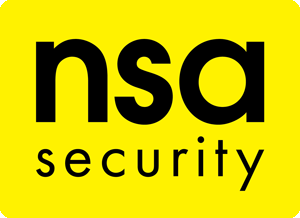

The code of ethics for a security guard is a significant set of guidelines ensuring they operate with integrity and professionalism. It emphasises the importance of obeying legal standards, maintaining confidentiality, and committing to public safety.
Guards must display punctuality, vigilance, and ongoing learning as part of their ethical duties. Upholding honesty and transparency are essential for fostering trust and professionalism.
Conflict resolution skills, involving active listening and calm communication, are necessary in managing tense situations effectively. Continuous training reinforces ethical responsibilities and enhances performance.
Understanding these principles allows security professionals to navigate their roles with competence and trustworthiness.
Legal and Ethical Standards
Security guards frequently operate within a framework of legal and ethical standards that are fundamental for maintaining public safety and trust.
Security guards must adhere to these standards to guarantee effective service. Their ethical responsibilities include maintaining confidentiality of sensitive information and promptly reporting incidents to maintain safety.
Understanding and applying legal and ethical standards is essential, especially regarding the proportional use of force, to avoid legal repercussions. Continuous training helps them navigate complex situations, reinforcing their commitment to professional conduct.
Adherence to a code of ethics is significant in preventing misconduct and establishing a reliable standard for professional behaviour. Consequently, this fosters public trust in security services, reinforcing the integrity and reliability expected in the security profession.
Professional Conduct Expectations
A fundamental aspect of professional conduct for security guards is maintaining a demeanour and appearance that reflect the integrity required in their role.
In the security industry, guards are expected to exhibit ethical standards by prioritising public safety and security. This duty to maintain professional conduct includes guaranteeing punctuality, vigilance, and a commitment to ongoing learning. Such dedication enhances their capability to perform effectively and responsibly.
Integrity is vital, demanding honesty and transparency in all actions, thereby upholding the profession’s reputation. Confidentiality is essential to maintain trust, although it will be further discussed in subsequent sections.
Adhering to these principles guarantees that security guards meet the high expectations of their role, fostering trust and reliability in public and private sectors.

Importance of Confidentiality
Confidentiality stands as a cornerstone of the security guard profession, underscoring its significant importance in upholding legal and ethical standards.
Security guards are legally obligated to safeguard confidential information about clients, employees, and operations. This responsibility prevents potential legal liabilities and breaches of trust, which can result in financial penalties and reputational damage.
By ensuring confidential information remains protected, security guards contribute to a secure environment, fostering trust and reliability in their professional relationships. This trust is essential, as the protection of personal information is imperative due to the sensitive data security guards access.
Adherence to confidentiality standards is necessary for compliance with federal and state regulations, reinforcing ethical conduct and professionalism within the security industry.
Conflict Resolution Strategies
Effectively managing conflicts is essential for security guards, as they frequently encounter situations requiring diplomatic resolution skills.
Conflict resolution involves active listening, allowing guards to de-escalate tensions by acknowledging and understanding concerns. Utilising calm and assertive communication can defuse potentially volatile situations, providing clear expectations and minimising misunderstandings.
Professionalism is maintained by implementing a “three-step approach”: evaluating the situation, identifying each party’s needs, and finding mutually acceptable solutions. Non-verbal cues, such as an open posture and appropriate eye contact, convey safety and control.
Training in conflict resolution techniques, including role-playing scenarios, equips security guards with practical skills. This training promotes ethical behaviour, ensuring a safe environment for all parties involved.
Continuous Training and Improvement
Continuous training and improvement are critical components of a security guard’s professional development, ensuring they remain informed about their legal and ethical responsibilities.
Security companies prioritise regular training to keep guards abreast of evolving state and federal regulations. This commitment to continuous training is essential for maintaining proficiency in skills such as First Aid and conflict resolution.
Workshops on confidentiality and data protection further reinforce guards’ ethical obligations regarding client information. Ongoing assessments evaluate security practices, identifying areas for improvement and enhancing overall performance.
If you want to know more about the code of ethics for a security guards, contact nsa security on 1300 135 950 for more details.




